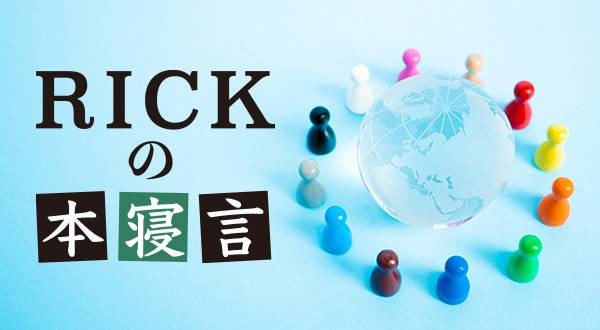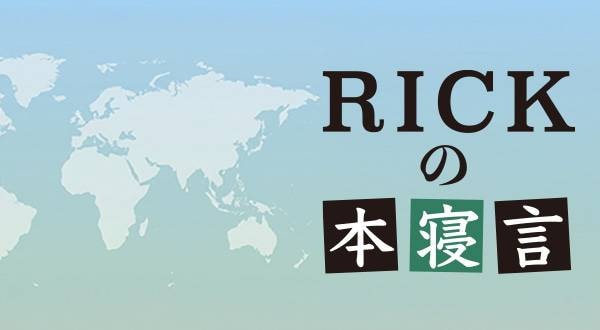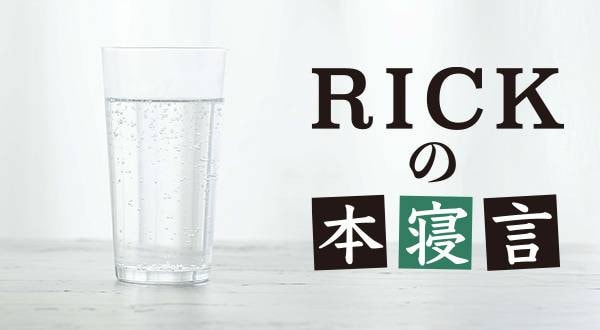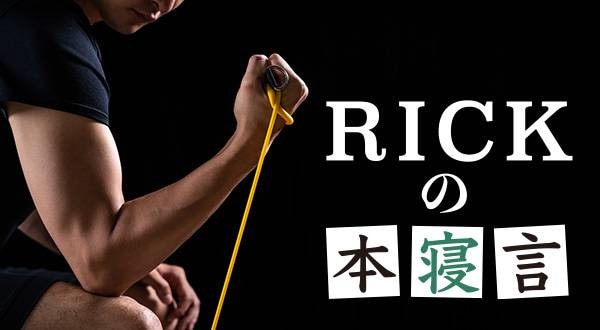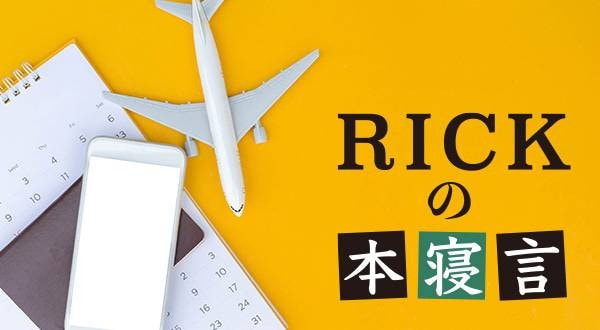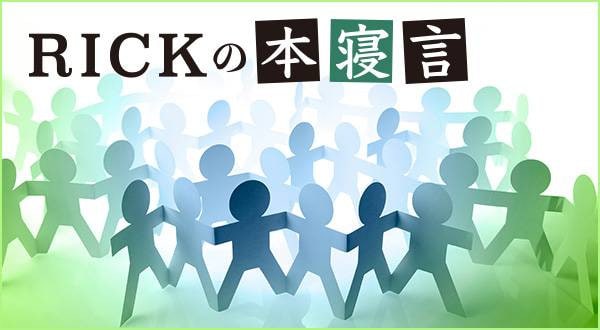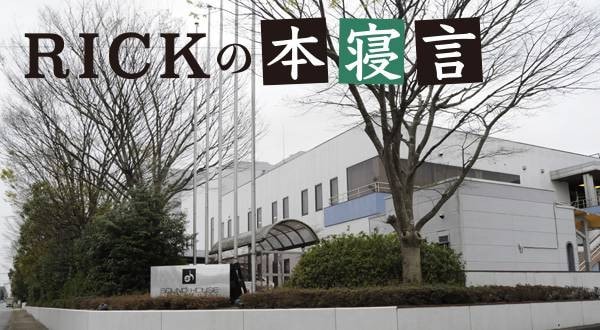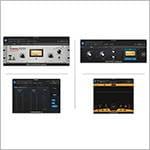Sound House began as a small, old prefab shack and has grown into the huge company that it is today. As the founder of the company, I currently serve as chairman, and a lot of the responsibility falls heavily on me. It is my mission to keep the company alive, whether I want to or not. This is because more than 200 employees, their families, and relatives, a total of 1,000 people, depend on the revenue source of the company for their livelihood. Therefore, I must keep a watchful eye on everything until daily tasks and the growth of the company can continue on without me. This is also hard work.
The backbone of this arduous task is actually data gathering. There is a saying, “A frog in a well knows nothing of the sea.” If we know nothing about what is happening in the world, and if we are not concerned about what is going on around us, we will eventually fall into complacency and be satisfied with the status quo. However, this means that one day you will be devoured by the monsters and enemies around you, and in the world of work, this means a great defeat and bankruptcy for your company. The reason for this is that people failed to look around, failed to notice the changes in the social environment, and failed to pay deep attention to what their competitors were doing. Unless I expand my own worldview, I will not learn of the sea of information out there.
Therefore, an important part of the chairman’s job is to gather accurate information. The challenge is to assess the global political and economic situation, look ahead to the future of the Japanese economy, and acutely analyze the position of the company before formulating a marketing plan and developing a business in a timely manner. This is quite a difficult story. Probably more than half of our employees will stop reading here and that’s a shame. This is evidence that the employees don’t understand the importance of data even though gathering data is vital and the driving force that creates the foundation for their livelihoods.
Gathering information means learning as much as possible from as many media networks, i.e., different media, as possible. As I look back on my own life, I started reading newspapers when I was in junior high school, partly on the recommendation of my school. I also began to read the weekly magazine occasionally. When I entered college and began taking business courses, I began to read newspapers such as the Wall Street Journal, which focused on social economy and business management. After doing this for some time, newspapers became an inseparable part of my life, and I have treasured them to this day, along with the information sources I get from television. This is why, for example, even when I am away from home on a business trip for a week, I read through a week’s worth of newspapers with great effort when I get home. It’s because there is always some unexpected and important information to be found from the newspapers that I read.
Nowadays, I try to read through several economic magazines. I read Weekly Diamond, Nikkei Business, Toyo Keizai, etc., as well as anything else I get a chance to read. This is because, based on the information contained in these magazines, I can see what actions I should take and the management strategy of my company. Without this information, how can I guide our companies? Without a map, how can one travel through an unfamiliar jungle? Only with the right information can we find the way forward. Therefore, I have dedicated myself to gathering information and view it as a fundamental discipline that is indispensable for running Sound House.
Of course, today, I use many forms of digital information in addition to print media. Many economic magazines now have digital versions, and I subscribe to Nikkei Business, the printed magazine and the digital version. Newspapers have also gone digital. Thus, I am subscribed to the digital versions of Yomiuri Shimbun and the Tokushima Shimbun, and news is delivered to me by email daily. So, I can hear some of you saying, “Well, why don’t you just convert everything to digital and get rid of the paper?” However, this is not entirely the case. Take newspapers, for example, and flip over a page of the Nihon Keizai Shimbun. If you are accustomed to skimming through the articles, even if there are 10 to 20 detailed articles on a 2-page spread, you can skim through them in a few seconds and get a general idea of the content. It is normal for me to read only one or two articles per page. This kind of speed reading is possible with newspapers, but not with digital editions. In other words, newspapers are far more efficient. The younger generation these days probably does not realize this advantage. They would rather not have their fingers blackened by newspaper ink. It’s not that I don’t understand their feelings, but I wonder if this is just a current trend.
After all, accurate information is essential for a company to succeed. This is why I have been vocal over the years telling the company staff to at least read Nihon Keizai Shimbun. The Nikkei, in particular, has been carrying daily articles on important topics such as online shopping related to Sound House’s business, mass retailer trends, digitalization of payment systems and security issues, business development of major logistics companies, and everything from social networking to AI. In particular, the most recent articles related to AI and the dramatic speedy change of content is remarkable. In addition, the Nikkei’s evening editions have music-related articles on the last page every day. This may be another way to pique the interest of subscribers and to broaden their customer base. The magazine frequently carries interesting articles for musicians as well. Despite the Chairman’s instructions and guidance, employees these days do not even try to read the Nikkei, even though it is so important. Is this a problem with their upbringing and education? It is lamentable that many employees do not listen to the Chairman, who is supposed to be the ultimate boss.
Therefore, my duties as chairman of the board still require me to gather information, which is extremely important. This means not only watching and listening to a lot of news, but also obtaining a variety of information from my overseas acquaintances. One of the strengths of Sound House is the fact that I have close friends in my industry all over the world. Through the overseas networks and contacts that have been cultivated over the years, I can occasionally obtain information that ordinary people do not have access to. Based on this information, new business strategies can be developed. However, in order to make use of this base of overseas information, it is essential to have a considerable command of English and to interact with people of various ethnic backgrounds. This is also a big burden for many employees other than myself. This is because there are so many people who cannot speak English. No matter how much I tell them that English is important, they do not want to study it or enjoy learning it, and as far as I can see from the company culture, the future of this company may have already reached its limits.
It is so important to stay informed! Everyone, keep an eye on the news! Read the Nikkei! Study English too! I would like to say out loud that these are the conditions in order for Sound House to remain No. 1, and they are not difficult to practice at all. However, I fear that no matter how much I say this, there are many people who do not take this seriously. Until someone realizes the importance of this, I will continue to collect information myself. And, until someone else takes over, I will be in charge of all the connections with foreign dignitaries. Oh, how I hope this endless challenge is just a dream. When I wake up from this dream, I will find myself free of these endless responsibilities. Which is, in fact, just another dream.








